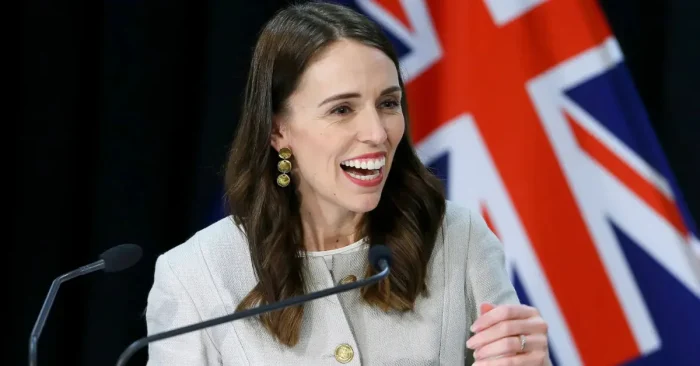Jacinda Ardern – Biography
Early Life and Education
Jacinda Ardern was born on July 26, 1980, in Hamilton, New Zealand. Raised in the small town of Morrinsville, she grew up in a supportive family that valued community and service. From a young age, Ardern showed an interest in politics and social justice. She attended the University of Waikato, where she earned a Bachelor of Communication Studies degree in politics and public relations. Her academic background and early volunteer work laid the foundation for her future in public service and leadership.
Early Political Career
Ardern began her political career working as a researcher in the office of Prime Minister Helen Clark. She gained valuable experience in policy and government operations. Later, she spent time in London working in the Cabinet Office, focusing on issues related to social development. Returning to New Zealand, Ardern was elected as the Member of Parliament for Mount Albert in 2008. Over the next several years, she built a reputation as a passionate and effective advocate for progressive policies and youth engagement in politics.
Rise to Leadership
Jacinda Ardern’s rise within the New Zealand Labour Party was swift. In 2017, she was elected leader of the Labour Party, just seven weeks before the general election. Her charismatic and compassionate style quickly gained public support. Ardern led Labour into a coalition government with the New Zealand First party and the Green Party, becoming the country’s 40th Prime Minister. At 37, she was one of the youngest female heads of government in the world. Her leadership focused on kindness, inclusivity, and progressive reform.
Prime Ministership and Key Policies
As Prime Minister, Jacinda Ardern prioritized social welfare, climate change action, and economic reform. She championed initiatives to address child poverty, housing shortages, and mental health services. Ardern’s government committed to ambitious climate goals, including transitioning to renewable energy and reducing carbon emissions. She also emphasized indigenous rights and improved relations with Māori communities. Her empathetic response to crises, including the Christchurch mosque shootings and the COVID-19 pandemic, earned her international praise for effective and compassionate leadership.
Leadership Style and Public Image
Ardern is widely admired for her authentic, transparent, and empathetic leadership. Her communication style is clear and relatable, often focusing on unity and collective responsibility. She uses social media effectively to engage with citizens and promote openness. Ardern’s approach combines strength with compassion, making her a role model for progressive leadership worldwide. She is known for promoting diversity and inclusion within her government and encouraging young people to participate in politics.
Personal Life and Interests
Jacinda Ardern balances her demanding political career with family life. She and her partner, Clarke Gayford, have a daughter born in 2018, making Ardern the second elected head of government to give birth while in office. She has been open about the challenges of motherhood and leadership, advocating for better family policies. Ardern enjoys reading, outdoor activities, and is a supporter of New Zealand’s arts and cultural sectors. Her personal values strongly influence her commitment to social justice and community well-being.
Legacy and Future Prospects
Jacinda Ardern’s leadership has left a lasting impact on New Zealand and global politics. Her emphasis on kindness and inclusivity challenged traditional notions of political power. Under her guidance, New Zealand strengthened its social programs and international reputation. Though she announced her resignation as Prime Minister in 2023, her influence continues through ongoing policy work and mentorship of future leaders. Ardern’s legacy as a compassionate and effective leader will inspire generations to come.
Conclusion
Jacinda Ardern’s journey from a small-town girl to New Zealand’s Prime Minister exemplifies dedication, empathy, and progressive leadership. Her ability to lead with compassion during difficult times reshaped public expectations of political leadership. Ardern’s focus on social equity, environmental responsibility, and inclusiveness marks her as a transformative figure in modern politics. Her story continues to motivate those striving for positive change and a more just society.
Frequently Asked Questions (FAQS)
Who is Jacinda Ardern?
Jacinda Ardern is the former Prime Minister of New Zealand, known for her compassionate and progressive leadership.
When did Jacinda Ardern become Prime Minister?
She became Prime Minister in October 2017, leading a coalition government.
What are some key policies Jacinda Ardern focused on?
Her priorities included child poverty reduction, climate change action, housing reform, and mental health services.
How is Jacinda Ardern’s leadership style described?
She is known for being empathetic, transparent, and inclusive, promoting unity and social justice.
Did Jacinda Ardern have children while in office?
Yes, she gave birth to her daughter in 2018, becoming one of the few world leaders to do so while serving.






